第45章
We injure the health of the Child by enforcing on it silence.We have a stupid formula that children should be seen and not heard.We deny it exercise to its lungs.We discourage its natural and laudable curiosity by telling it not to worry us--not to ask so many questions.
Won't somebody lend the young gentleman from Cambridge a small and healthy child just for a week or so, and let the bargain be that he lives with it all the time? The young gentleman from Cambridge thinks, when we call up the stairs to say that if we hear another sound from the nursery during the next two hours we will come up and do things to that Child the mere thought of which should appal it, that is silencing the Child.It does not occur to him that two minutes later that Child is yelling again at the top of its voice, having forgotten all we ever said.
[The Child of Fiction.]
I know the sort of Child the weeper over Children's wrongs has in his mind.It has deep, soulful, yearning eyes.It moves about the house softly, shedding an atmosphere of patient resignation.It says:
"Yes, dear papa." "No, dear mamma." It has but one ambition--to be good and useful.It has beautiful thoughts about the stars.You don't know whether it is in the house or isn't: you find it with its little face pressed close against the window-pane watching the golden sunset.Nobody understands it.It blesses the old people and dies.
One of these days the young gentleman from Cambridge will, one hopes, have a Baby of his own--a real Child: and serve him darn-well right.
At present he is labouring under a wrong conception of the article.
He says we over-educate it.We clog its wonderful brain with a mass of uninteresting facts and foolish formulas that we call knowledge.
He does not know that all this time the Child is alive and kicking.
He is under the delusion that the Child is taking all this lying down.We tell the Child it has got to be quiet, or else we will wring its neck.The gentleman from Cambridge pictures the Child as from that moment a silent spirit moving voiceless towards the grave.
We catch the Child in the morning, and clean it up, and put a little satchel on its back, and pack it off to school; and the maiden lady Understander pictures that Child wasting the all too brief period of youth crowding itself up with knowledge.
My dear Madam, you take it from me that your tears are being wasted.
You wipe your eyes and cheer up.The dear Child is not going to be overworked: HE is seeing to that.
As a matter of the fact, the Child of the present day is having, if anything, too good a time.I shall be considered a brute for saying this, but I am thinking of its future, and my opinion is that we are giving it swelled head.The argument just now in the air is that the parent exists merely for the Children.The parent doesn't count.It is as if a gardener were to say, "Bother the flowers, let them rot.The sooner they are out of the way the better.The seed is the only thing that interests me."You can't produce respectable seed but from carefully cultivated flowers.The philosopher, clamouring for improved Children, will later grasp the fact that the parent is of importance.Then he will change his tactics, and address the Children, and we shall have our time.He will impress on them how necessary it is for their own sakes that they should be careful of us.We shall have books written about misunderstood fathers who were worried into early graves.
[The misunderstood Father.]
Fresh Air Funds will be started for sending parents away to the seaside on visits to kind bachelors living in detached houses, miles away from Children.Books will be specially written for us picturing a world where school fees are never demanded and babies never howl o'
nights.Societies for the Prevention of Cruelty to Parents will arise.Little girls who get their hair entangled and mislay all their clothes just before they are starting for the party--little boys who kick holes in their best shoes will be spanked at the public expense.